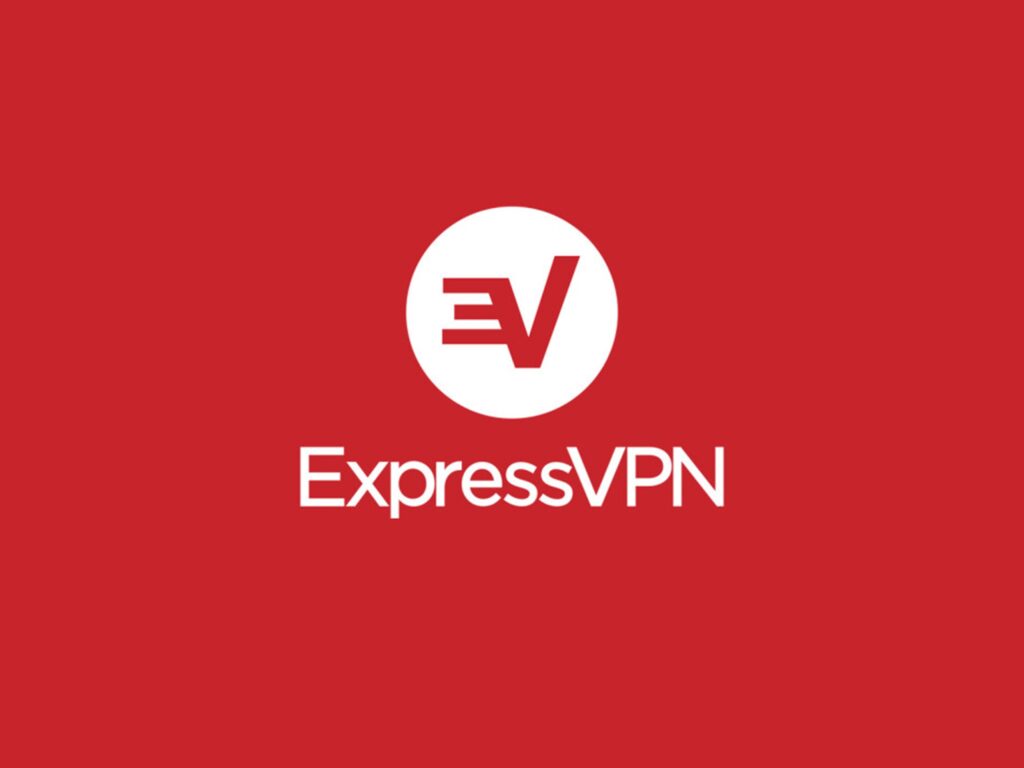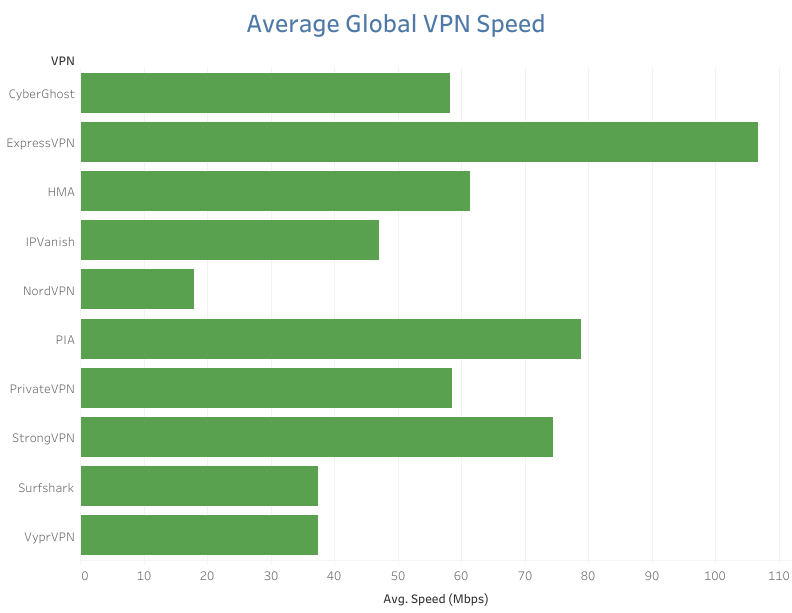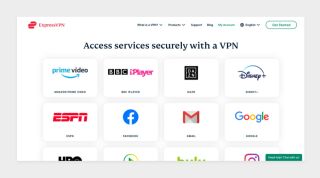ExpressVPN is one of the safest and quickest VPNs (Virtual Private Networks) available. People often think that it is very expensive and end up overlooking the fact that ExpressVPN offers an annual plan which helps in huge savings for the buyer and is convenient as well. It also frequently provides discounts that make it more reasonable, but other good VPNs offer similar security features for far less prices. Is it really necessary to spend so much money on a VPN as good as ExpressVPN? Let us find out whether ExpressVPN is worth the price it charge, here is our ExpressVPN review:
Pros:
- An excellent Android app.
- The geographical distribution of servers is excellent; and
- There are several servers.
Cons:
- Higher in price in comparison to other CPN’s; and
- Only three connections are available at the same time.
No matter what device you use, connecting to unsecured networks without a VPN is dangerous. ExpressVPN for Android has 2,000 servers throughout the world, but it’s expensive compared to competitors and lacks high-end features like ad-blocking and split tunneling. Its user-friendly interface makes it an excellent pick for newbies learning about VPNs, and its multiplatform compatibility broadens its reach to a wider audience.

Speed
Over the course of three days, we tested ExpressVPN speeds using both wireless and Ethernet connections. The speed of the internet in the United States varies greatly depending on the state and the provider. As with any speed test, the results were affected by local infrastructure, with hyperfast internet connectivity resulting in faster test results. That’s one of the reasons we’re more concerned about the amount of speed lost, which for most VPNs is often 50% or more.
In the case of ExpressVPN, we were dismayed to discover a 52% speed loss in 2020 testing, compared to its unrivaled 2% speed loss in 2019. ExpressVPN is still a speed monster, have no doubt. Our non-VPN speeds were 193 Mbps throughout our 2020 testing, whereas ExpressVPN’s general world average speed was 93 Mbps. On European connections, peak rates of around 122 Mbps were achieved between Frankfurt, Berlin, and Paris.
With average speeds of 101 Mbps and 86 Mbps, Australia beat the United Kingdom. However, the UK had the higher individual high score of the two, reaching 157 Mbps in a single test, compared to Australia’s greatest single-round score of 136 Mbps.
The business also stated that speeds may increase when it relocates its OpenVPN infrastructure to Lightway, an in-house protocol based on Wireguard that is presently in development.

Pricing
ExpressVPN provides a relatively simple price structure, with only three subscriptions starting at $12.95 per month.
That’s not cheap, but CyberGhost, Hotspot Shield, and Surfshark all price approximately $13 for monthly subscriptions, which isn’t much more than most big-name VPNs charge, which is roughly $9-$10.
When you sign up for ExpressVPN’s 6-month subscription, the monthly cost reduces to $9.99. That’s a good deal, and it also allows you more freedom than some of its competitors, who don’t even offer a 6-month plan.
The annual plan reduces your expenditures even further to $8.32 per month, a substantial 35 % saving over the monthly membership. However, it’s still more expensive than some of the competition (Private Internet Access charges $3.33 for an annual subscription, while Windscribe just $4.08), especially if you’re ready to sign up for a long time. For example, Private Internet Access’ three-year package is only $2.19 per month, while Ivacy’s five-year plan costs only $1.33 per month.
When comparing headline prices, be careful to read the small print, since ExpressVPN is closer to several rivals than you may think. Many sellers, for example, offer modest pricing that rises with time.
At $4.50 a month for the first year, IPVanish appears to be a good deal, but the price rises to $7.50 when you renew. NordVPN is also reasonably priced at $4.92 per month, although it costs $9.92 per year to renew.
Security and Privacy
Every VPN promises to provide perfect privacy, but when you dig further, you’ll find that there’s frequently little substance to back this up. ExpressVPN is refreshingly different in that it doesn’t simply tell you how great it is, it also offers an extremely long list of features to back up its claims.
Take, for example, encryption. Most providers may state that they support OpenVPN or cite AES-256, but ExpressVPN goes above and beyond. The company explains that it encrypts its control channel using a 4096-bit SHA-512 RSA certificate and employs HMAC (Hash Message Authentication Code) to prevent ordinary data from being changed in real-time.
We checked ExpressVPN’s OpenVPN configuration files to confirm this, and the details were exactly as the company had described.
Perfect Forward Secrecy (PFS), also called Forward Secrecy (FS), refers to an encryption system that changes the keys used to encrypt and decrypt information frequently and automatically. This ongoing process ensures that even if the most recent key is hacked, a minimal amount of sensitive data is exposed.
PFS used by ExpressVPN provides an extra degree of security by providing you with a new secret key each time you connect and updating it every 60 minutes while the session is active. Even if an attacker manages to get access to your system, they’ll only acquire 60 minutes of data at best.
Another highlight is DNS (Domain Name System) support. ExpressVPN not only provides DNS leak prevention to keep information about your online activity from leaking out of the VPN tunnel, but it also runs its own private, zero-knowledge, 256-bit encrypted DNS on each of its servers.
This is a significant advantage over certain less-reputable providers, who may, in the worst-case situation, redirect your DNS traffic to OpenDNS or another third-party service.

Logging
When you visit a typical VPN website, you’ll see claims like ‘NO LOGGING!’ prominently displayed in large font, but often hidden behind that is a privacy policy that either gives you very little information about any specifics or reveals that the company does, after all, log some of your information.
ExpressVPN operates uniquely. For example, there is no ‘zero log’ boasting on the website’s home page, and you must go to a ‘What Is VPN‘ page to receive a first look at the company’s position: ‘Privacy is a fundamental right. We don’t keep connection or activity logs, and we never share your details with anyone.’
If you want further information, the company does not compel you to go through 2,000 words of jargon-filled small print to find relevant details. Simply clicking a link inside the ‘no log’ statement leads to a well-written ‘Policy towards logs’ page that explains what ExpressVPN collects, what it doesn’t, why the service functions the way it does, and what it means to consumers.
ExpressVPN, Netflix, and Streaming
ExpressVPN, unlike most of its competitors, doesn’t just make broad promises about its unblocking skills, it lists which platforms are supported, including Netflix, BBC iPlayer, Amazon Prime, Disney Plus, Google, Wikipedia, and YouTube (more than 25 services in total). It’s good to see a service provider be upfront about what it claims to do.
We did multiple tests to see if we could access US Netflix, Amazon Prime Video, BBC iPlayer, and Disney Plus from a variety of ExpressVPN servers to get a sense of the service’s unblocking capabilities. This year, Netflix has been fighting VPNs harder than usual, and it has already blocked several of them. ExpressVPN hasn’t been beaten yet, since we were able to access Netflix in two of our three test locations.
It was quite simple to use Amazon Prime Video. We tried three ExpressVPN servers, and each time we were able to view US content.
The same was valid for BBC iPlayer, which we were able to access from all four ExpressVPN UK locations.
ExpressVPN also finished on a high note, bypassing Disney Plus protection with the first location we tried (the second and third worked, too).

Servers and server locations
The number of servers and server locations offered by a VPN service is one way we evaluate it. The more of each service it makes accessible, the less impact it should have on the performance of your network. In other words, if you can contact less congested, geographically nearby servers, you will likely obtain faster speeds.
ExpressVPN has roughly 3,000 servers, the last time we checked. This is a good amount of servers, but not the best we’ve seen. NordVPN, for example, has over 5,000 servers, while Private Internet Access, TorGuard, and CyberGhost each have over 3,000. Nonetheless, ExpressVPN’s results surpass TunnelBear, ProtonVPN, and IPVanish.
ExpressVPN claims that it has servers in 94 different countries, which is rather impressive. That’s greater than KeepSolid VPN Unlimited (62) and NordVPN (62), Hide My Ass VPN and PureVPN, claim to cover 190 and 140 countries respectively.
We can conclude that practically in every regard, ExpressVPN is difficult to beat. It is unquestionably worth the money. It also comes with a money-back guarantee, allowing you to try out all of ExpressVPN’s features without risk. If it’s not for you, you have 30 days to get a refund. So, wait no further, go try it out today!
If you liked this article, do check out ‘NordVPN Review – Is it truly reliable?’.